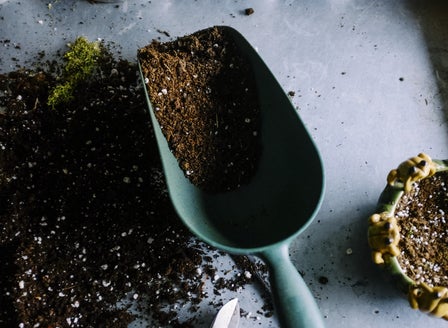Calla lilies (Zantedeschia), are a subtropical perennial, originating from South Africa. They grow from Rhizomes and are popular as garden flowers. They have gorgeous chalice-shaped flowers and arrow-shaped spotted leaves that can sometimes be speckled. Great when planted into garden borders or into container.
Planting Calendar
Calla lilies are best planted from September through until December.
Prepare
Position
Calla Lilies can grow in full sun- partial shade. In hotter areas they will do better in part shade protected from the hot midday sun. Ideal for containers, borders or garden beds where they can show off their delightful bright blooms.
Soil
Zantedeschia like a soil rich in organic matter they thrive in situations that are moist, living next to ponds and in damp parts of the garden. Add Kings Compost, Sheep pellets and Kings Slow Release Bulb food to the soil and mix together. When planted into pots plant into Kings Potting Mix.
Plant
Choose a good healthy Rhizome that is firm and not spongy. Calla should be planted at about 10cm deep and 30cm apart with the growing tips facing up.
Care
Watering
Calla like to be kept moist at all times. Water slowly allowing the water to sink down into the roots, rather than allowing it to run off the top of the soils surface. Add Saturaid into the soil at planting as this will help channel the water deep down into the root zone. Consider setting up an automatic watering system – these can be simple and inexpensive.
Feeding
Fortnightly applications of Aquaticus garden Booster will provide a strong healthy plant with colourful flowers. Feed at planting time and when the flowers have finished with Kings Slow release Bulb Food.
Protecting
Protect from Slugs and Snails with Tui Quash.
Mulching
Mulch around the base of the plants (make sure that the mulch does not come into direct contact with the stem of the plant) with Living Earth More than Mulch. Mulching helps to reduce weeds as well as aiding the soil to retain moisture.
General Care
When using sprays, chemicals or fertilisers always read the label and follow the instructions. Apply sprays in the evening to avoid harming beneficial insects.
Beginner Tip
In the right conditions Calla will usually produce growth in around 2 weeks and flower in approximately 3-4 Months after planting Rhizomes.
Expert Tip
Calla can be left in the ground after flowering as long as the soil is not too wet during winter. If you are lifting your Rhizomes to store over winter, wait until the foliage has died down and has turned brown. Cut the foliage down to about 2cm above the ground, carefully lift the rhizome then allow it to dry then put in a dark dry place covered a little peat moss that is just damp.
Tip
Zantedeschia are perfect for cut flowers, being one of the longest-lasting (around 2 weeks). Grow for floral arrangements or wedding bouquets. Instead of cutting with scissors, pull the stalk out instead.
Frequently Asked Questions
How often should I water Calla Lilies?
Calla like to be kept moist at all times. Water slowly allowing the water to sink down into the roots, rather than allowing it to run off the top of the soils surface. Add Saturaid into the soil at planting as this will help channel the water deep down into the root zone. Consider setting up an automatic watering system – these can be simple and inexpensive.
Can Calla Lilies be grown in pots?
Calla Lilies can be successfully grown in pots. Use a quality potting mix and ensure the pot has good drainage. Place the pot in a location with filtered sunlight.
What type of fertiliser should I use for Calla Lilies?
Fortnightly applications of Aquaticus garden Booster will provide a strong healthy plant with colourful flowers. Feed at planting time and when the flowers have finished with Kings Slow release Bulb Food.
Are Calla Lilies prone to pests or diseases?
Calla Lilies are relatively pest-free but can occasionally be affected by aphids, slugs, and snails. Use organic pest control methods and ensure good air circulation to prevent fungal diseases.
Why are the leaves of my Calla Lily turning yellow?
Yellowing leaves can be a sign of overwatering, poor drainage, or a lack of nutrients. Ensure the soil is well-drained and not waterlogged, and consider applying a balanced fertiliser.
